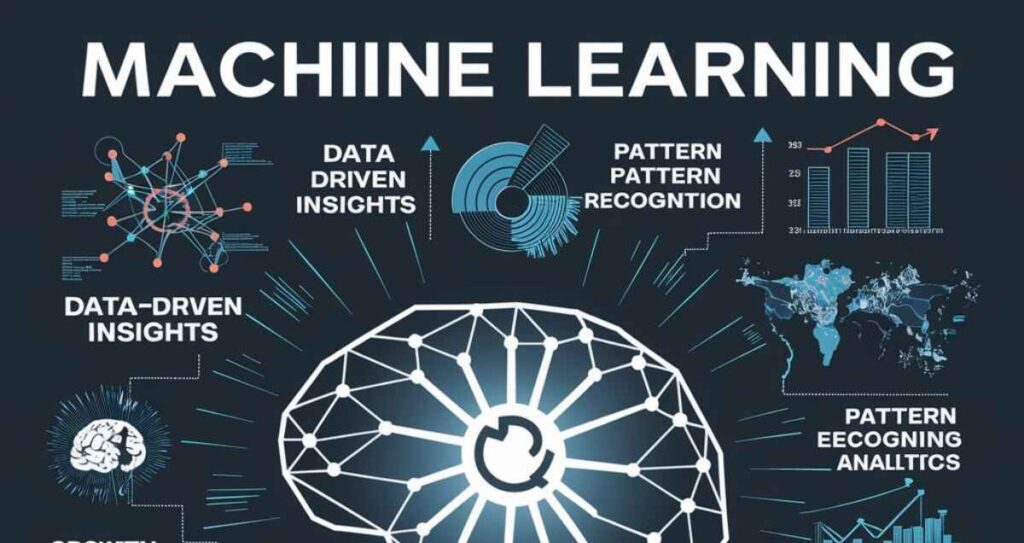Machine learning is a subset of artificial intelligence that enables systems to learn from data, identify patterns, and make decisions with minimal human intervention. By leveraging algorithms, machine learning improves over time, providing valuable insights and automation across various industries.
Imagine a world where businesses can predict trends, automate repetitive tasks, and personalize experiences with ease. This is the promise of machine learning. As technology advances, its benefits in decision-making, efficiency, and data handling become increasingly crucial for organizations striving to thrive in a competitive landscape.
Machine learning is a branch of artificial intelligence that enables systems to learn from data and make decisions with minimal human input. It enhances decision-making, automates tasks, personalizes experiences, and continuously evolves to provide effective solutions.
Enhanced Decision-Making

One of the most significant advantages of machine learning is its ability to improve decision-making processes. By analyzing vast amounts of data, ML algorithms can uncover hidden patterns and insights that humans might overlook. This capability allows organizations to make more informed choices, leading to better outcomes.
For example, in finance, machine learning models can predict stock market trends, enabling investors to make smarter investment decisions. Similarly, healthcare providers use ML to analyze patient data, improving diagnostic accuracy and treatment recommendations.
Automation of Repetitive Tasks
Machine learning significantly streamlines operations by automating repetitive tasks, allowing human employees to focus on more strategic initiatives. Tasks such as data entry, document classification, and customer support can be handled by ML systems, reducing the burden on staff.
Example: Chatbots powered by machine learning can provide customer support around the clock, answering frequently asked questions and resolving issues without human intervention. This not only enhances customer satisfaction but also cuts operational costs.
Personalization
Personalization is another powerful advantage of machine learning. By analyzing user behavior and preferences, ML algorithms can tailor experiences to individual users, increasing engagement and satisfaction.
For instance:
- Streaming Services: Platforms like Netflix and Spotify use machine learning to recommend movies or music based on a user’s viewing or listening history.
- E-commerce: Online retailers utilize ML to suggest products that align with customers’ past purchases, enhancing the shopping experience.
This level of personalization helps businesses build stronger relationships with their customers and drive loyalty.
Improved Accuracy and Efficiency
Machine learning systems often outperform traditional methods in terms of accuracy and efficiency. By learning from data, these models can refine their algorithms over time, leading to continual improvement.
For example: In the field of medical imaging, machine learning algorithms can analyze X-rays or MRIs with remarkable accuracy, often identifying abnormalities faster and more reliably than human radiologists. This can lead to earlier diagnoses and better patient outcomes.
Handling Large Volumes of Data

The sheer volume of data generated today can be overwhelming. Machine learning excels in processing and analyzing large datasets quickly and efficiently, uncovering insights that might be impossible for humans to discern.
Applications include:
- Fraud Detection: Financial institutions use ML to analyze transaction data in real-time, identifying suspicious activities and potential fraud much faster than manual reviews.
- Social Media Analysis: Brands analyze vast amounts of social media data to gauge public sentiment and trends, enabling them to make timely marketing decisions.
This ability to handle big data enhances operational efficiency and drives strategic insights.
Predictive Analytics
Machine learning enables predictive analytics, allowing businesses to forecast future trends and behaviors based on historical data. This capability is invaluable across various industries, from finance to healthcare to retail.
Examples include:
- Sales Forecasting: Retailers can use ML to predict sales trends based on seasonal patterns, helping them manage inventory more effectively.
- Preventive Maintenance: Manufacturing companies implement ML to predict equipment failures, allowing for proactive maintenance and minimizing downtime.
By anticipating future events, organizations can make proactive decisions that improve efficiency and reduce costs.
Continuous Improvement
Machine learning systems are designed to improve over time. As they process more data, they become better at recognizing patterns and making accurate predictions. This continuous learning process means that organizations can benefit from a system that evolves and adapts to changing circumstances.
For instance, recommendation systems on platforms like Amazon become increasingly effective as they gather more data about user preferences, leading to improved customer experiences over time.
Conclusion
The advantages of machine learning are transforming industries and enhancing everyday life. From improved decision-making and automation to personalization and predictive analytics, the impact of ML is profound and far-reaching.
As businesses and individuals continue to harness the power of machine learning, we can expect even more innovative applications that drive efficiency, productivity, and growth. Embracing this technology is not just a trend; it’s becoming essential for success in a data-driven world.
David Mark is a tech and science enthusiast and the writer behind TechNsparks. With a passion for innovation and discovery, David explores the latest advancements in technology and scientific research. His articles provide insightful analysis and engaging commentary, helping readers stay informed about cutting-edge developments. Through TechNsparks, David aims to make complex tech and science topics accessible and exciting for everyone.
